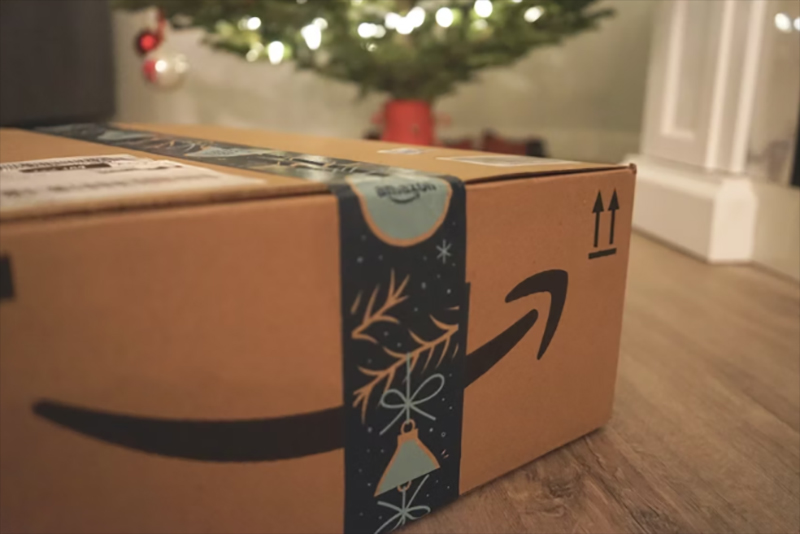 Amazon
Amazon Nearly half of Amazon customer orders are shipped with reduced packaging to cut down on plastic use
Bengaluru/IBNS/UNI: Amazon announced on Tuesday that nearly half of the customer orders in India are now shipped from its fulfillment network in their original packaging with just an address label added by the e-commerce platform or with reduced packaging.
As part of the company’s commitment to reduce packaging, Amazon avoids adding its packaging for individual shipments by delivering multiple shipments in a reusable crate or a corrugated box.
Amazon now makes these deliveries in more than 300 cities in India today, up from nine cities initially in 2019.
Amazon estimates it has avoided using more than 5,300 metric tons of plastics since it replaced thin-film single-use plastic packaging material with paper and cardboard-based packaging in its Indian fulfillment network in June 2020.
"At Amazon, we are relentless in our commitment to reduce packaging as we work to become more sustainable across our operations,” said Abhinav Singh, Vice President of Operations, Amazon India.
"I am proud of the progress we’ve made, with nearly half of the orders from Amazon’s India fulfillment centres now shipping to customers with reduced or no added packaging. We’ll continue to build on this momentum, and work to further reduce the amount of packaging that customers in India receive."
In India, Amazon uses a machine learning algorithm to assess customer orders according to the category of product ordered, the location of the customer, and the distance the order has to travel.
The algorithm then determines whether packaging is required to keep the delivery safe and secure and, if it is, by how much. This helps Amazon select the right amount of packaging for each product and use less material.
Products that are often shipped with no-added packaging include tech accessories, homeware, home improvement products, shoes, and luggage, among others.
Since 2015, Amazon has reduced the average weight of outbound packaging per shipment by more than 41% globally and eliminated more than 2 million tons of packaging material.
Items that need additional protection during transportation, or that customers prefer to arrive in added packaging via an opt-in feature – such as liquids, fragile goods, and personal care items – continue to be shipped with added packaging.
These packaging milestones complement Amazon’s broader sustainability progress in India. As part of its Climate Pledge commitment, Amazon has a goal to reach net-zero carbon by 2040.
Amazon also continues to transform its transportation network by electrifying its delivery fleet and has worked with its partners to deploy more than 6,000 electric vehicles in its India delivery fleet, making deliveries in more than 400 local cities.
The company recently announced its seventh utility-scale renewable energy project in India – a new 198 megawatt (MW) wind farm in Osmanabad, Maharashtra.
This brings Amazon to 50 wind and solar projects locally, surpassing 1.1 gigawatts (GW) of renewable energy capacity and becoming the largest corporate buyer of renewable energy in India.
Amazon is also investing US$15 million in nature-based projects to support communities, climate resilience, and biodiversity in the Asia-Pacific (APAC) region.
The first US$3 million from the fund’s APAC allocation supports projects in India, creating carbon sinks as well as enhancing wildlife conservation and livelihoods. Its first project in the Western Ghats will plant 300,000 trees.
Support Our Journalism
We cannot do without you.. your contribution supports unbiased journalism
IBNS is not driven by any ism- not wokeism, not racism, not skewed secularism, not hyper right-wing or left liberal ideals, nor by any hardline religious beliefs or hyper nationalism. We want to serve you good old objective news, as they are. We do not judge or preach. We let people decide for themselves. We only try to present factual and well-sourced news.







